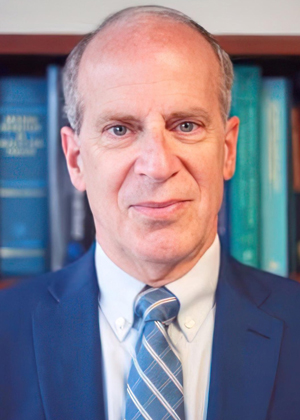 James M. Shikany, DrPH, (Oberman Endowed Professor, Preventive Medicine) has received a 10-year renewal as the Coordinating Center for the CARDIA study — Coronary Artery Risk Development in Young Adults. This renewal will provide total funding up to $29 million to the Coordinating Center to facilitate and oversee study activities for the next 10 years.
James M. Shikany, DrPH, (Oberman Endowed Professor, Preventive Medicine) has received a 10-year renewal as the Coordinating Center for the CARDIA study — Coronary Artery Risk Development in Young Adults. This renewal will provide total funding up to $29 million to the Coordinating Center to facilitate and oversee study activities for the next 10 years.
The objective of this nearly 40-year-old investigation is to examine the factors that contribute to the development of cardiovascular disease and better understand the natural history of cardiovascular disease over the adult life course. Dr. Shikany leads a group of 20 Coordinating Center investigators and staff in the UAB Division of Preventive Medicine.
The CARDIA study originally began in 1985, recruiting a cohort of 5,115 participants into approximately equal subgroups of race, gender, education, and age at each of four field centers: Birmingham, Alabama; Chicago, Illinois; Minneapolis, Minnesota; and Oakland, California. This cohort has participated in multiple follow-up examinations from 1987 to 2022.
Over the years, data on factors such as blood pressure, cholesterol, and glucose were collected. Data on physical weight and body composition, as well as lifestyle factors such as dietary and exercise patterns, tobacco/alcohol use, behavioral and psychological variables, medical and family history, and other chemistries were also collected. CARDIA also has included innovative imaging modalities, such as brain MRI.
 Pictured Above: Christie McCullum-Hill, DrPH; Sejong Bae, PhD; James Shikany, DrPH; Byron Chancellor, BS; Dongquan Chen, PhD; and Lucia Juarez, PhD“We still have a lot to learn about the development of heart disease. We are at the point in CARDIA where people have reached the age where we see actual cardiovascular events, not just the presence of risk factors or subclinical disease,” Shikany said. “and we’re able to study the factors that might contribute to the development of those events.”
Pictured Above: Christie McCullum-Hill, DrPH; Sejong Bae, PhD; James Shikany, DrPH; Byron Chancellor, BS; Dongquan Chen, PhD; and Lucia Juarez, PhD“We still have a lot to learn about the development of heart disease. We are at the point in CARDIA where people have reached the age where we see actual cardiovascular events, not just the presence of risk factors or subclinical disease,” Shikany said. “and we’re able to study the factors that might contribute to the development of those events.”
Long-term studies like the CARDIA study are crucial to understanding causes of cardiovascular disease. For decades, findings from the CARDIA study have contributed substantially to our knowledge about the importance of lifestyle and environmental factors in the development of cardiovascular disease. “This kind of study enables us to look at the natural development of cardiovascular disease instead of just being able to look at snapshots here and there,” said Shikany. In addition to cardiovascular disease, CARDIA has contributed in important ways to the study of brain health, health disparities, and many other subjects.
To learn more about the CARDIA Study, visit the CARDIA website, and to learn more about the Birmingham Field Center’s renewal award, see Birmingham Field Center awarded 10-year $7.7 million continuation of a decades-long Cardiovascular Risk Study.